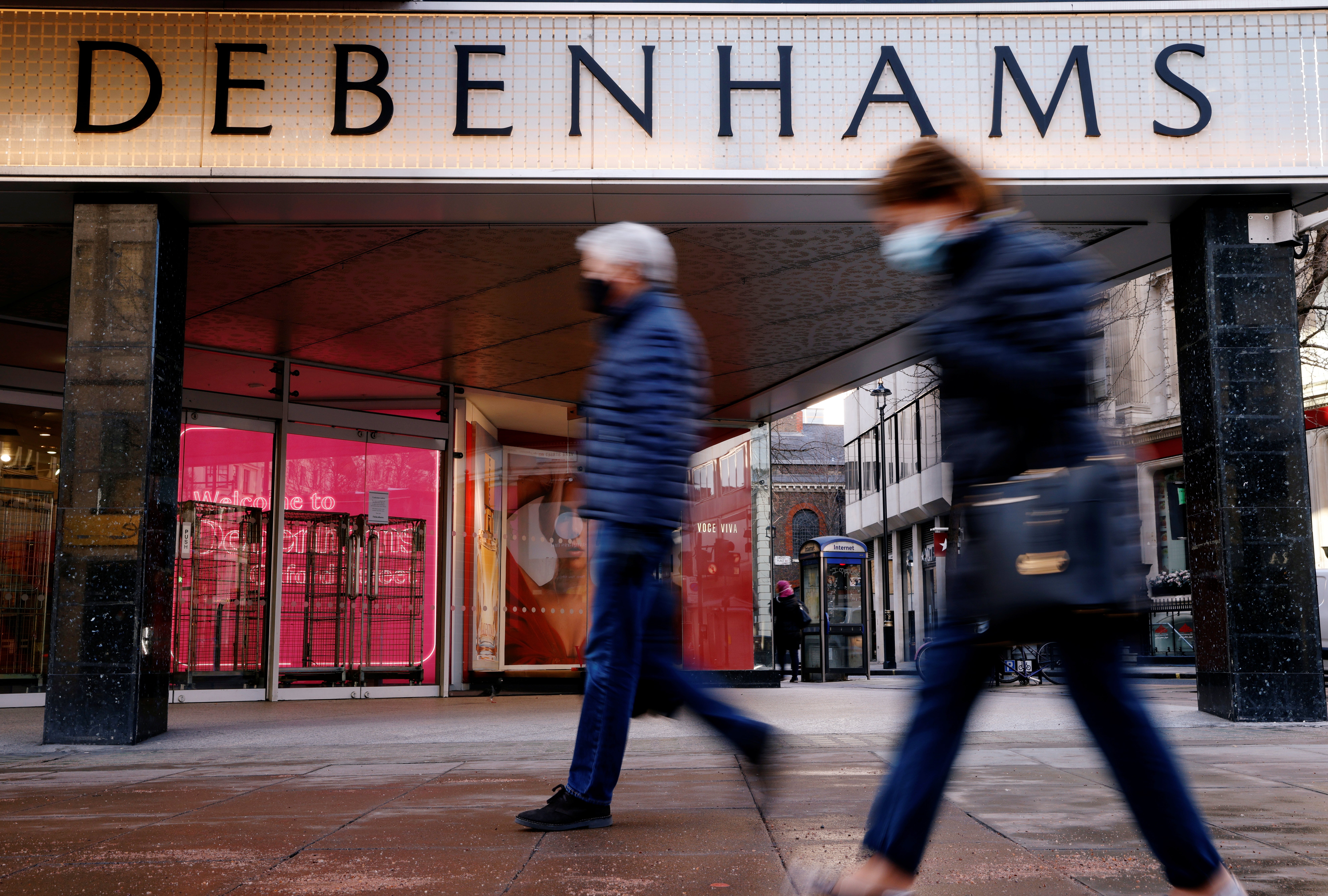What will our high streets look like after the pandemic – and where are the opportunities for retailers?
A drop in demand for stores selling goods will free up space for high-skill services, coffee shops and homes, writes Hamish McRae


The high streets have reopened at last. But it has been a strange and uneven couple of days for the UK’s retailers, pubs, coffee bars and hair salons. It is not simply that the new normal is not yet the old normal – though it is certainly that – for a chilly drink in a pub garden is rather different from one in a warm, crowded bar. It is also the first glimpse of how the new normal will never be the old normal. Some businesses will never reopen – notably some high-street chains, but also some restaurants and other service businesses.
Debenhams is having its huge closing-down sale, with its remaining 97 stores expected to be shut by the end of May. John Lewis is closing many of its stores, and trimming space at others. But that’s the headline stuff. We know all this.
What we know only from walking down our local streets is what is happening to the hundreds of thousands of small enterprises. We see that new trendy restaurant that seemed to be doing OK before the shutdown is now closed for good. But the cut-price hair place a few doors down has a queue stretching round the corner, desperate for quick trim. That story – what happens to small businesses – is what the future of the high street will be about.
Several things seem to be happening. One is that most chain stores are under pressure. Most chains need less space, so even the strong brands seem likely to scale back their footprint. That frees up space for someone or something else – and that will depend on the location.
High streets that were doing well will continue to do well, while those that were already struggling will struggle. So the “something else” in favoured locations will be any form of specialised service that still needs a shopfront, even if much of their business has switched to online. Remember, a shopfront is an advertisement for online – it tells the world that the business is real.
Specialist retailers have been one of the winners from the lockdown: expect them to continue to be winners as things open up. That has the potential to make our high streets more varied and more vibrant, for the chains may have brought activity to city centres, but they have also made them lose their individual identities.
Next, there will be a shift to services. Less space for selling things equals more space for selling services. We can guess, but we can’t know what these will be for sure because some of the services don’t yet exist.
We didn’t know, five years ago, that home-workers would need coffee shops with good wireless access to use as alternative offices, the etiquette that buying a coffee gave you an hour or so tapping away at your laptop, provided not too many other customers needed a seat. The more the move towards more home-working sticks, the more demand there will be for places near home where people can take a break.
Closure of bank branches will create more space, too. Towns and cities were already adept at finding new uses for former bank premises, and now they will have to lift their game again.
That leads to a further point. Local authorities have many pressures on them, often imposed by central government. But they have not, with of course exceptions, generally felt responsible for the vibrancy of their city and town centres – or perhaps they felt a general responsibility but found it hard to translate that into enterprise-friendly policies.
Pre-pandemic, there were already wide disparities across the land. Just before it struck, Centre for Cities did a study on how cities and towns might improve their performance. It made a string of recommendations, but the one that struck me most was the need for high-skill businesses that wanted to locate in city centres to have a clear run in finding premises. If you can bring well paid jobs into a location, other services – and jobs – will follow. There is no “one-size-fits-all” solution, but helping the business community is good place to start.
There is something else. The country needs less retail space (maybe less office space, though that is not certain) but certainly more housing space. Homes have become the new factories, in the sense that people do more of their work there. So, in very broad terms, we need to make that switch. How you do it will be the challenge of the next decade. What the miserable experience of the past year has done, however, is to speed up the shifts in property use that was already taking place.
We should welcome the return to life in city centres. But we must also note that keeping those centres vibrant will mean they will probably become places where more people live – and fewer people shop.
Join our commenting forum
Join thought-provoking conversations, follow other Independent readers and see their replies
Comments